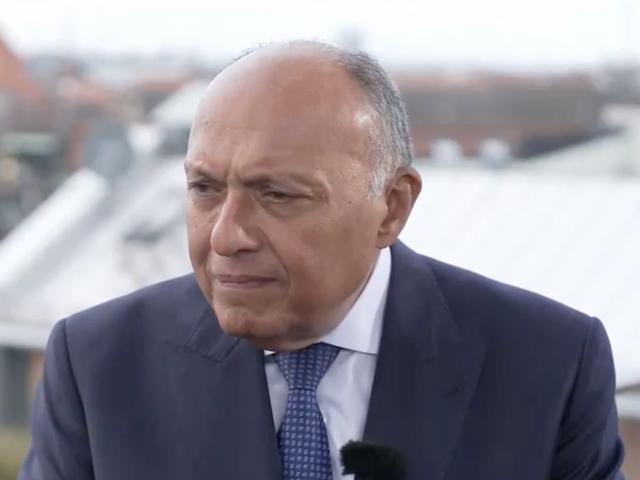At the recent Munich Security Conference, Egyptian Foreign Minister Sameh Shoukry highlighted the significant deviation of Hamas from the broader Palestinian consensus. This divergence, as Shoukry emphasized, stems from the group's acquisition of substantial power and funding in Gaza, which has exacerbated tensions with other Palestinian factions advocating for peace. The Egyptian diplomat's remarks came in response to a query from former Foreign Minister Tzipi Livni, pointing to the necessity for a thorough examination of the support mechanisms fueling Hamas's stronghold in Gaza.
Despite the clear stance of Egyptian President Abdel Fattah el-Sisi against resettling displaced Gazans in Egypt, Shoukry assured that Egypt would extend humane treatment to Palestinians entering the Sinai Peninsula from Gaza. The Egyptian government, he noted, does not plan to establish safe zones or special facilities for Gazans. However, should the need arise, Egypt is committed to addressing the situation with the necessary compassion.
From the safety of Oman, this gentleman thrashes Egypt FM for blaming Hamas, saying it does not represent Palestinian consensus (Hamas refuses to join the Palestine Liberation Organization -- the "sole and legitimate representative of the Palestinian people," per the UN).
— Hussain Abdul-Hussain (@hahussain) February 18, 2024
Then… https://t.co/dmDsE0rtvq
In light of the ongoing conflict, Israeli Prime Minister Benjamin Netanyahu has pledged to persist with the IDF offensive until achieving an "absolute victory," including in the Rafah region. Amid speculation about Egypt's construction of facilities to accommodate Gazans fleeing the violence, Shoukry clarified that current border maintenance activities should not be misconstrued as preparations for such measures.
The Governor of North Sinai elucidated on Friday that the ongoing construction near the Gaza border is intended for the storage and facilitation of humanitarian aid delivery to Gaza. This statement came in the wake of a report by The Wall Street Journal, which suggested that Egypt was preparing a fortified compound in the Sinai Peninsula, capable of housing up to 100,000 people, in anticipation of potential Israeli operations in Rafah.
As appalling as October 7 was, it still is not in a vacuum.”
— Richard Goldberg (@rich_goldberg) February 18, 2024
Egypt’s foreign minister threatens serious consequences to stop Palestinians from fleeing to the Sinai (showing how little Egypt cares for Palestinian life), then justifies October 7 massacre. https://t.co/O0F6ulOGhg
Despite denials from the governor regarding the compound's intended capacity to shelter 1.5 million refugees, images have surfaced showing a substantial wall encircling the area, designed to accommodate an extensive influx of displaced individuals. The construction efforts, led by Egyptian contractors near the Gaza border, include plans to elevate the wall's height if deemed necessary, demonstrating Egypt's proactive measures in managing the crisis. Moreover, the project has necessitated the demolition of homes belonging to Bedouins in the region, with assurances that the displaced will be compensated through the reconstruction of destroyed buildings.
Cairo is rightly concerned about Hamas and Muslim Brotherhood flooding into Egypt. But why can’t Egypt with vast open space in Sinai take in civilians temporarily?
— Mark Dubowitz (@mdubowitz) February 17, 2024
Once war is over, Gazans can return to a reconstructed Gaza.
So much for Muslim brotherhood. https://t.co/eOUw4dMMS1
The international community, including Israeli and American officials, appears to be tacitly aware of the developments concerning the compound's construction. This collaborative silence underscores the complexity of the geopolitical dynamics at play, as stakeholders navigate the delicate balance between humanitarian assistance and regional security concerns.


